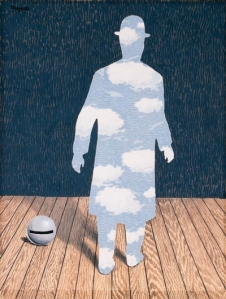
The narrative conception of personal identity is the matrix of numerous research programs in Philosophy, Literary Studies and Social Sciences. However, after the apparent consensus about the value of the hypothesis of Narrative Selfhood, based on works by A. MacIntyre, P. Ricoeur and C. Taylor, among others, a new critical awareness of the vulnerability of such hermeneutic cogito has emerged that will be deepened by this Project. In analytic philosophy, the puzzling-cases, heuristically fruitful from J. Locke to D. Parfit and G. Strawson, denounce the idealism of the unity and identity of autobiographical memories, and claim their fragmentary or episodic nature. The grammar of psychological verbs also reveals, in a neo-Wittgensteinian analysis, the contingency of narrative configurations and the introspective emptiness of the self. In continental philosophy, one emphasizes the resistance of the pre-narrative phenomenological ground, the silence of the life-world, the bodily pathos and the random spontaneity of brute events with its catastrophic temporality and semantic discontinuity (from Husserl to M. Henry, and from Merleau-Ponty to S. Gallagher, L. Tengelyi and C. Romano). In Literature, the stability of the self is disrupted as imaginative forms proliferate which transgress narrative genre and voice (whether in fiction, poetry or hybrid styles), expanding the fractal and abyssal universes of Proust, Joyce, Pessoa, Borges, Musil or Kaffka, and submitting the narrative form to the amorphous matter-energy of life. In Social Sciences, evidence abounds on the protean character of the multiple relationships between experience and narrative, showing contradictory movements towards unification and fragmentation, the search for meaning and the (tragic or ironic) enjoyment of nonsense. Therefore, the storytelling animal with its famous triple mimesis and the dialectics between idem and ipse that for Ricoeur should be capable of self-permanence in word and action, seems to ignore that life precedes and transcends narrative, and that narrative intelligibility requires self-reduction.
The main goal of this Project consists in investigating how the narration imposes, by its rhetoric morphogenesis of self-coherence, both order and loss on lived experience. Thus, we propose a return of the hermeneutics of the self to the phenomenology of sensation, memory, imagination and symbolic experience, asking:
1. What is the temporal geometry of events and feelings? How do random, discontinuous, multilinear and multidirectional events become the matter of biographical experience and expression? How do pathos and trauma, be it psychological or historical, (un)form time, consciousness, and narrative?
2. What is the relationship between the sensorial layer of life, the autobiographical memory system and the narrative constructions? What is the degree of poiesis and mimesis in biographical writing? How does the Diltheyean triad Life-Expression-Understanding function?
3. What is the relationship between memory, imagination and language in biography? Is memory essentially a subsystem of one’s imagination and will to meaning? And is imagination the subjective appropriation of the imaginary metanarratives of a semiotic community (codified e.g. in mythic-theological discourse)?
4. What is the intentionality of a life history/story? Who are its writer, narrator, and actor? What is the relationship between life, art and truth? Is there truth in an ethical and aesthetic Self? What is narrative, historical, hermeneutical and performative truth?
5. What is the ethical and political meaning of the Narrative Self? Does moral personality lie in narrative competence? Does responsibility consist in narratability? Does struggle for recognition translate into psychosocial internarrative conflict (being unnarratable experience confined in an apolitical and amoral realm)?
Methodologically, the integrated analysis of Biographical Selfhood should become a cross-disciplinary space shared by an international, interdisciplinary network of approx. 30 scholars from Philosophy, Literary Studies and Social Sciences (besides other collaborators and graduate students). Departing from a common set of issues and sharing the same philosophical references, the researchers—most of them already in collaboration before this project—will explore with multiple perspectives the limits and virtues of the narrative paradigm of subjectivity, promoting research seminars at various institutions in constant exchange (CFUL, EHESS, UFRJ, ULaval, UCLouvain, UParis3, UParis4). The Seminars will be coordinated and integrated to fulfill joint research tasks requiring the implementation of a collective process of co-reading/writing, which leads to joint publications and organization of regular plenary meetings and conferences. Philosophy will offer analytical devices and formulate the theoretical hypotheses to be tested in the empirical laboratories of Literature and Social Sciences.
